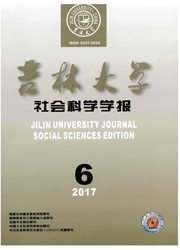

 中文摘要:
中文摘要:
基于ANST-GARCH模型,我们利用美国、英国、日本和中国证券市场数据实证检验了时变理性预期假说,发现国际证券市场普遍存在非对称均值回归特征,非对称性源自投资主体对坏消息的过度反应和对好消息的反应不足,过度反应假说成立。同时,除日本以外的市场风险补偿具有时变特点,但预期收益与风险的正相关在利空消息冲击下并不成立,因此,结论不支持时变理性预期假说。
 英文摘要:
英文摘要:
This paper empirically testes the Time-Varying Rational Expectations Hypothesis in US, UK, Japan and China stock markets based on asymmetric nonlinear smooth transition generalized autoregressive conditional heteroskedasticity (ANST-GARCH) models. The results illustrate that the asymmetric pattern of return reversals is directly associated with the unequal pricing behavior on the part of investors, which supports the Overreaction Hypothesis. Even though the risk premium is time-varying except in Nikkei, a bad information shock leads a positive relationship between expectation returns and risk can not be held, which could not support the Time-Varying Rational Expectations Hypothesis.
 同期刊论文项目
同期刊论文项目
 同项目期刊论文
同项目期刊论文
 期刊信息
期刊信息
